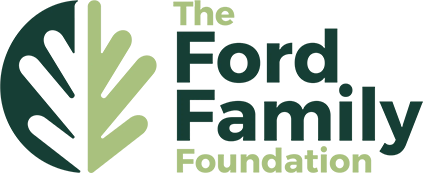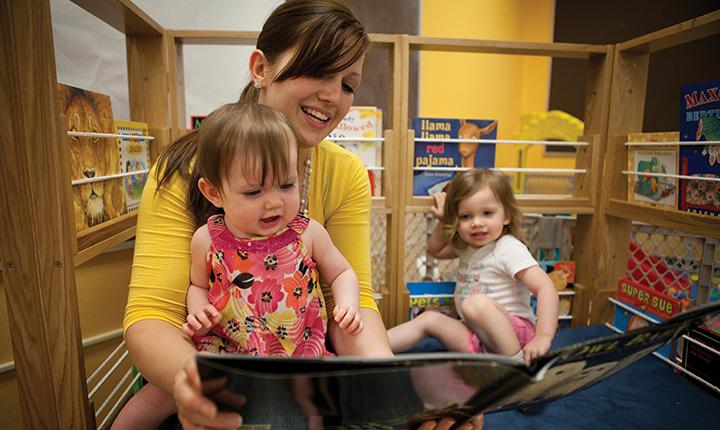Yoncalla project links early childhood and early childhood education
It was summertime, but one room at Yoncalla Elementary School was alive with the sounds of children — young children. They were in the Family Room, a space where parents and their children can gather, socialize, volunteer and learn.
The Yoncalla Early Works demonstration project seeks to build links between early childhood (birth to age 5) and early education (kindergarten through grade 3). Children typically don’t have contact with their elementary school before they walk in the doors as a kindergartner. The Early Works project hopes to change that.
“It’s really a new way of thinking,” says Christy Cox, program officer for early childhood development for The Ford Family Foundation. “It’s a bridge-building effort between the silos of early learning and K-12 schools.”
Together with the David Douglas School District, the Children’s Institute launched Early Works in 2010 at Earl Boyles Elementary School in Southeast Portland. The Ford Family Foundation and the Children’s Institute launched a rural Early Works site at Yoncalla Elementary School in Douglas County in 2012.
Partners in the effort include the Yoncalla School District, Douglas Education Service District, the Yoncalla Library branch, Early Head Start and the North Douglas Family Relief Nursery, to name a few.
Strengths and needs
The Early Works project began as a way to prepare children in the Yoncalla area for kindergarten and school success. Organizers spent the first year gathering data and bringing together stakeholders to find out the strengths and needs for local early childhood programs and services. It was a time for reflection and relationship-building that formed a strong foundation for moving forward.
In the second year, the Yoncalla Early Works team looked carefully at the data and what families were saying. Here’s what they said: We don’t necessarily want a preschool, but we do need a place for families to go with their children to be safe and have fun.
The Family Room fills that need. Run by Rebecca Pope, a full-time AmeriCorps volunteer, the room brings families together for playgroups and educational activities. “These kids are going to school soon,” Pope says. “This serves as a soft handoff — the kids are already ready to learn, they are used to the school environment, and they are getting social skills from the playgroup.”
Pope doesn’t have to look far to find evidence that the Family Room is having an effect. Pope, a young parent herself, takes her two children to work. “My 2-year-old was hardly talking at all, just a word here and there,” she says. “Within two weeks she was actually carrying on conversations. It was a huge difference.” By having her children with her, Pope can be a model for and relate to other Yoncalla parents.
The Family Room also served as the site for a parenting class, and Pope recently hosted a baby shower there for the mother of one of the students.
“That’s one of the things we can do to support mothers, build stronger community ties and get more people aware of what we do,” she says.
The biggest challenge she faces now is increasing parental involvement and leadership. “You can hear it, you can read it, and it still doesn’t click,” Pope says. Her most effective recruiting technique is to stop parents of small children in the street and tell them about the Family Room. It works — Pope says she’s getting a few new families every month.

